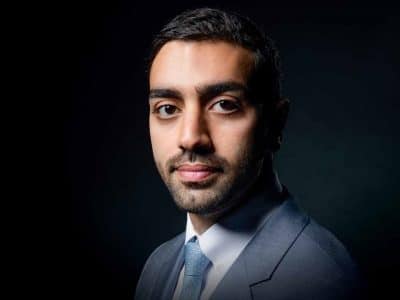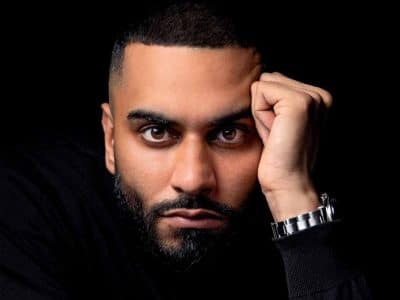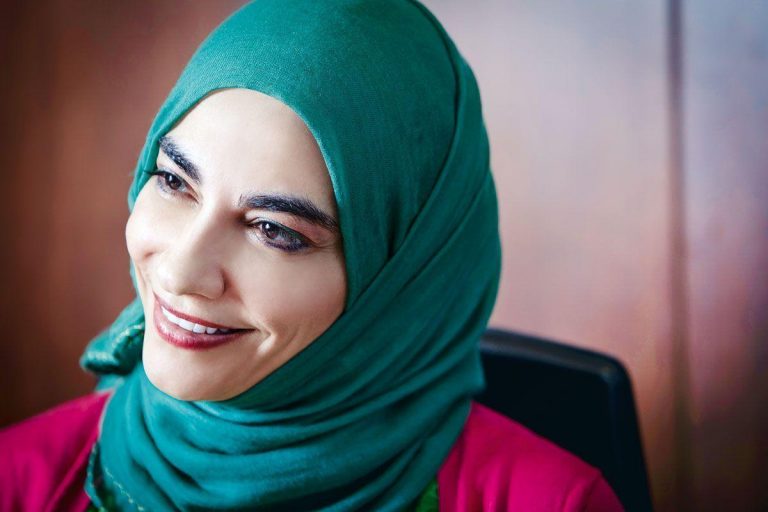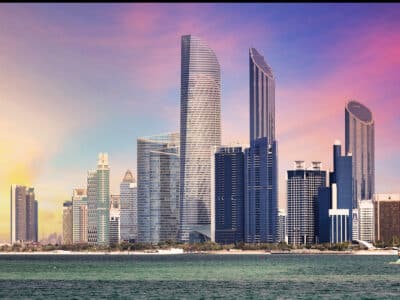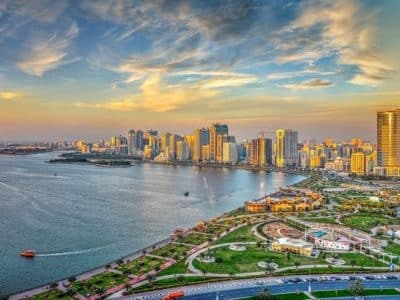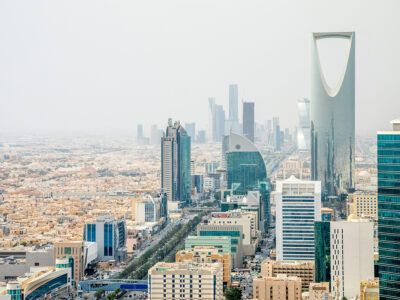Hayat Sindi has made a habit of breaking new ground in whatever endeavour she puts her mind to.
The Saudi-born medical scientist has been trailblazing since she embarked on her first quest, as an ambitious teenager speaking no English but with a passion for science, to study in the UK.
Her career has been marked by a succession of accolades as her research into diagnostics and biotechnology, and her inventions, have been heralded internationally.
The first Saudi and female scientist to become a UNESCO Goodwill Ambassador for sciences, this year Sindi added to her achievements an historic selection as one of the first tranche of 30 women to be appointed to Saudi Arabia’s Consultative Assembly, or Shura Council, which is the formal advisory body to King Abdullah.
But for the woman named by influential US magazine Newsweek as one of 150 Women Who Shook the World last year, her focus these days is on mentoring the next generation of inventors and entrepreneurs through her fellowship programme, the i2 Institute.
“In the Middle East people are tired from hearing that we don’t have inventors,” Sindi, who has taken time out of a three-day training workshop at PwC in Dubai, says.
“We have lots of TV shows about Arab Idol and music and things, but we need to celebrate something else, we need to celebrate the brains.”
Sindi says scientific entrepreneurship as a concept in the Middle East is quite new.
“What is based on science and technology is frightening, because people don’t want to touch that investment, they want to touch something they understand,” she says.
“It’s understandable and logical — if you have money you want to put it where you know best and science and technology was for so long far away from us.
Article continued on next page…
However, she bemoans that what was once a great pioneering region now suffers from a “fear” of starting companies. Sindi points to recent research, which said that 51 percent of respondents to a survey cited fear as their major reason for not launching their own firms.
“First we don’t have the business skills in starting business in science and technology,” Sindi says, frankly.
“Second: the venture capital culture is quite new, and third: there is no encouragement from the social [side].
“If you fail, if you want advice… it’s something new. Nobody can give you support. So, we need something like this to exist.”
Through i2, which stands for Imagination and Ingenuity, Sindi says that six inaugural fellows chosen from around the Middle East have been offered a “platform” to turn their inventions into potential commercial successes through an intense training and development programme.
Offering them business skills, and perhaps more importantly, confidence, Sindi says the aim is to customise their product as well as “build the bridge” between investors and what is essentially raw inventing talent.
At the PwC workshop, for example, the focus is on areas such as developing a business plan, idea commercialisation, financial modelling and strategy development.
At the end of the programme is a chance to present their ideas to investors at a conference. “If people want to start something they can have a quick, successful story,” Sindi explains.
“For us the success is how, like you, the whole region understands the need for entrepreneurship in science and technology.
“The goal is not a start-up company. The goal is how are we going to educate and give the people the chance to be in that role, a chance for creativity.”
Article continued on next page…
However, the eagerness to succeed is key and the selection criteria is tough. From a possible 12 available positions, only six applicants — from Saudi Arabia, Palestine, Syria and Egypt — made the cut.
During the interview process she looked for a combination of “passion, creativity and determination”.
In addition, they needed to have sound, patentable ideas that fit into the four categories represented by investors in i2 Institute — energy, health, water and environment.
“You can get people to be educated at the best universities in the world. But how many of them then aspire to change the world?” Sindi asks. “You need that mentality.”
“What happens if their invention didn’t get any investors? Would they go cry in a corner? No. We need them to breed more [ideas] and need them to understand this is the world.”
A successful inventor in her own right, Sindi’s first venture came when she founded the company Synoptix and developed, with Saudi seed funding, a diagnostic tool used for the early detection of breast cancer.
Her next start-up, another diagnostic tool used to detect certain illnesses and medical problems such as liver failure, was developed with a group of scientists at Harvard University through the self-funded, not-for-profit organisation: Diagnostics For All (DFA).
More recently, Sindi has continued to work on the patent for a portable MRI scanner while working to roll out DFA in Africa soon.
However, while Sindi’s science ability is enviable she admits her business acumen in those early days fell short.
“It was really hard,” she says of starting Synoptix after completing a PhD in biotechnology at the University of Cambridge — another first for a female in the Gulf region.
Article continued on next page…
“This is a great invention for the early detection of breast cancer. [But] biotechnology is very risky, though the reward is high.
“So it was really hard to find the right seed money to get the right incubator in England, to find the team, because it was quite a lot of money.
“I also didn’t have the business skills before, so I didn’t know how to get the team, I didn’t know how I can get the business model.”
On the urging of a respected professor, Sindi went on to complete a two-year degree in the Commercialisation of Science and Technology at Harvard Business School.
But it was those tough early days with Synoptix that inspired the i2 Institute.
“That’s why I started it,” she explains.
“When I started to invent things, people won’t believe you here, because it’s something new for them. And also, when you are abroad, they won’t invest in you, they will invest in their own people they know.
“So, you’re in the middle of the road and you don’t know where to go and it’s very hard to keep going, except that you really have a huge, huge passion and drive.
“From my experience I understand, you know, what do they need to be able to see their dream come true, to be able to give them the right access, the connections, the business skills, the platform and then it’s up to them how they make use of all these resources.”
But she also knows there are no guarantees or easy routes to success. Sindi recalls having “one thousand or two thousand meetings” with a slew of investors over the course of her long scientific career.
And, like any major company which is continually evolving, she says she is still having to convince people of her ideas.
Article continued on next page…
However, it is the approach to failure in science entrepreneurship which needed to change in the Middle East and be viewed, not as a negative, but as a learning curve.
It’s a lesson she learnt when, as part of the DFA team, she was asked by a funding panel to detail how many companies she had started and failed.
Initially taken aback by the question, she answered honestly. She had failed twice. The first time was an Arabic teaching programme in the UK that didn’t work out, and the second was an electronics business that failed.
Sindi, who took away the first prize, says she later quizzed the panel member about that question.
But his response was simple. “Straight away he said to me: ‘If you don’t fail there’s something wrong with you. I won’t trust you with the money, because if it’s the first time you’re handed cash, what will happen?’”
With a self-described passion to make science affordable and accessible to everyone, Sindi is also teaching the fellows through a social science component of the course, how their talents can impact “every single human being”.
“I want them to be humble, I want them to be accessible and also to grasp the chance of being with experts,” she says.
To that end Sindi is relishing the role she took up last year as a UNESCO Goodwill Ambassador, where she encourages young girls and women around the world to embrace science.
“People want to see a role model,” she says. “When you ask them who is your hero as a scientist it’s always dead people like Einstein, like Newton. But we have wonderful people around us who do amazing work.”
Article continued on next page…
In another role, the pioneering scientist also describes her historic appointment to Saudi Arabia’s Shura Council as humbling, though a shock at first.
“I was asleep, early morning they called me,” she recalls of how the Palace relayed the news.
“I said ‘how can I help you’. [The Palace official] said ‘the king sends his regards and he has chosen you to be one of the 30 first women in the Shura ’.
“So, I said to him ‘great news, thank you very much. So, what should I do’?”
“He laughed and he said ‘be who you are’.”
Since January, when Saudi Arabia’s King Abdullah announced the landmark move, Sindi says the position has given her a newfound appreciation for and perspective on the role of government and how the kingdom works.
“When I was appointed I had two types of friends: I had people from the west, they think that’s great, I’m going to solve the world, women are going to solve the world, that’s great, go for it,” she says.
“And people in Saudi Arabia think that being a woman in the Shura you’re going to solve all the problems for women.
“But actually, you need to solve the problems for the whole nation. So, it’s very interesting how the west looks at it and how the east looks at it.”
Sindi points out that with a mandated quota of 20 percent women on the 150-member Shura Council it is higher than even the US, which has 17 percent.
Article continued on next page…
“It was actually a new experience for the king himself, for Saudi Arabia, for the world,” she says.
“We didn’t know what to expect and that was a mixed feeling. But, now things have settled and more people understand your role.”
Sindi , who is based between Saudi Arabia, the US and the UK, says the Shura Council meets two to three times a week where policies are discussed and “everything is debated” before a vote.
The Shura Council is permitted to propose draft laws, then the king has the power to pass or enforce them.
“In the government, everything is important,” says Sindi. “You need to live, you need to have food, you need to have medical care, you need to have education, you need to have good roads.”
Her time in the west, she says, has not diminished her connection to Saudi Arabia, and if anything now better informs her decision-making.
“I’m very much in touch with, especially, the youth and the issues in my own country,” she says.
“Living abroad, most of us have been educated abroad; you learn and then you go back and advise what you’ve learnt, what your expertise is and how you see the whole world is going, with deep understanding and the respect of your culture.”
